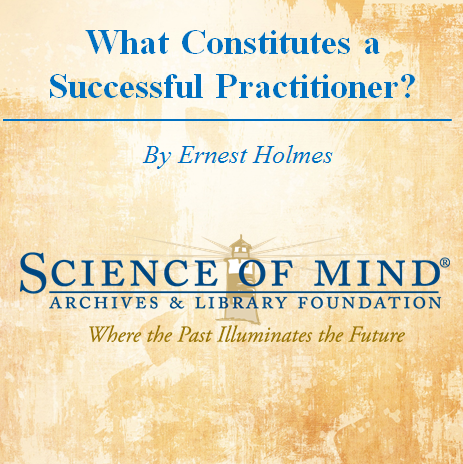Description
The mental and spiritual practitioner knows exactly what he is doing, and, if he is properly trained, he knows how to proceed. That is, he not only has a Principle to demonstrate, but he has a technique or a method of procedure. Generally speaking, the one who has had the broadest experience in life should be the practitioner. He views his patients, or those who come to him for help, neither as saints nor as sinners. He has no opinion whatsoever about them as persons; hence he treats each and all exactly alike, giving of his best to everyone who comes to him and expecting and requiring that they shall compensate him with the best they have, for without such compensation on their part – whether it be of money or of gratitude – the law of balance and equilibrium is not maintained. But the practitioner is very careful not to have any personal opinions about his patients. For if his work takes place in thought, then any personal opinion he might have about his patients would be a part of his thought about them; and if that opinion were not good, his work would not be good.
It is easy to see, then, that the spiritual practitioner must think of everyone who comes to him as part of the Eternal Principle of Reality, and never as being separated from It. No person should be more tolerant or broad-minded or more understanding of human reactions than spiritual practitioners. The practitioner must plunge not only beneath the physical pain and objective discord; he must also see through what the world calls sin, mistake, misunderstanding and fear. He clears the way mentally and as it were, lets down fire from heaven through the consciousness of his patient. He does this, of course, by straightening out his own thought about his patient. Sin, disease, punishment, discord, fear and doubt – all are denials of the Eternal Good, all finally will be healed through a realization of the Eternal Good. It is the practitioner’s business to seek such realization.
A practitioner should never take a personal responsibility for his patient. He has an obligation, however, to fulfill his contract; that is, to give definite time each day, working for his patient. Hence he should take only a certain number of persons, and if he has agreed to treat each one every day, he is dishonest unless he devotes special time for each individual case. He has contracted to do a certain piece of work and must discharge his duty. This is his obligation, but the responsibility for the demonstration rests entirely in the Principle of Creativeness with which he deals. In this Principle he must have implicit confidence; he must know that It will work out every problem and heal all confusion.
A spiritual practitioner does not enter this practice merely from the standpoint of a remunerative profession and yet, if he is well-balanced, he has every right to expect such remuneration. His motive, however, is to do good. His implicit confidence in the law of cause and effect should automatically draw from those whom he helps an equal good. His work is not in proper balance unless this action takes place.
A spiritual practitioner does not think or some people as being important while others are not important. There is no social register, no bluebook and no man or influence in his practice. He knows that the Kingdom of Heaven has no favorites and that the law of cause and effect is no respecter of persons. Therefore, he treats each and all exactly alike. This does not pertain, however, to his private life, for he has every right to choose whom his personal friends and acquaintances shall be and to decide what he wishes to do with his time and in whose company he wishes to be.
Practice is neither well wishing nor wishing people well. Practice of the Science of Mind is based upon a definite Principle, over which we need have no superstition whatsoever. This Principle is the Law of Mind in action. The laws with which we deal in the mental and spiritual realm are just as real as the laws in any other field and must be as definitely and consciously dealt with if we expect to have specific and desirable results.


